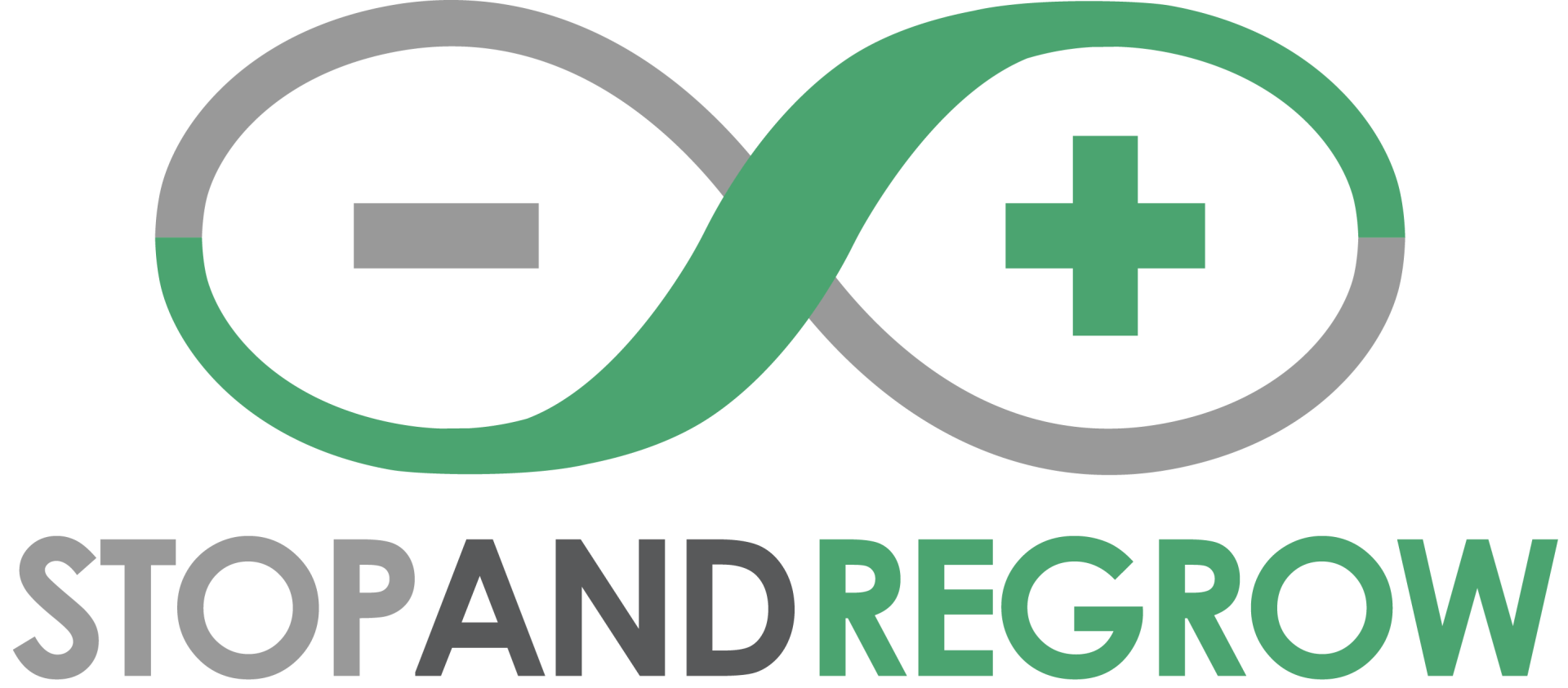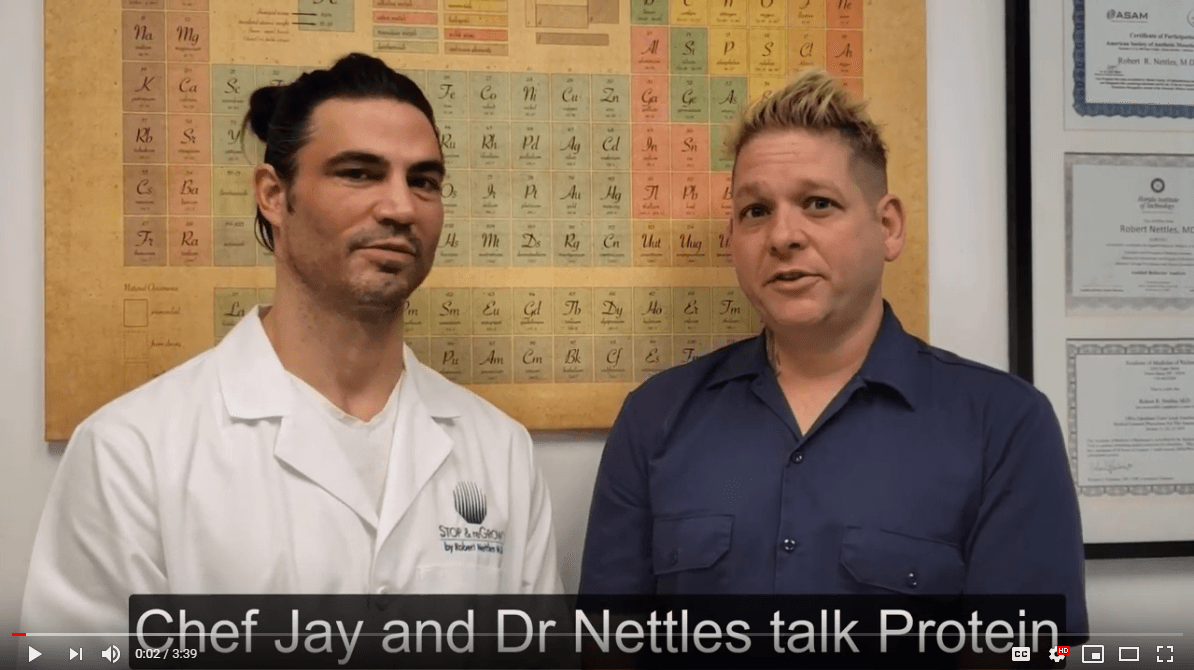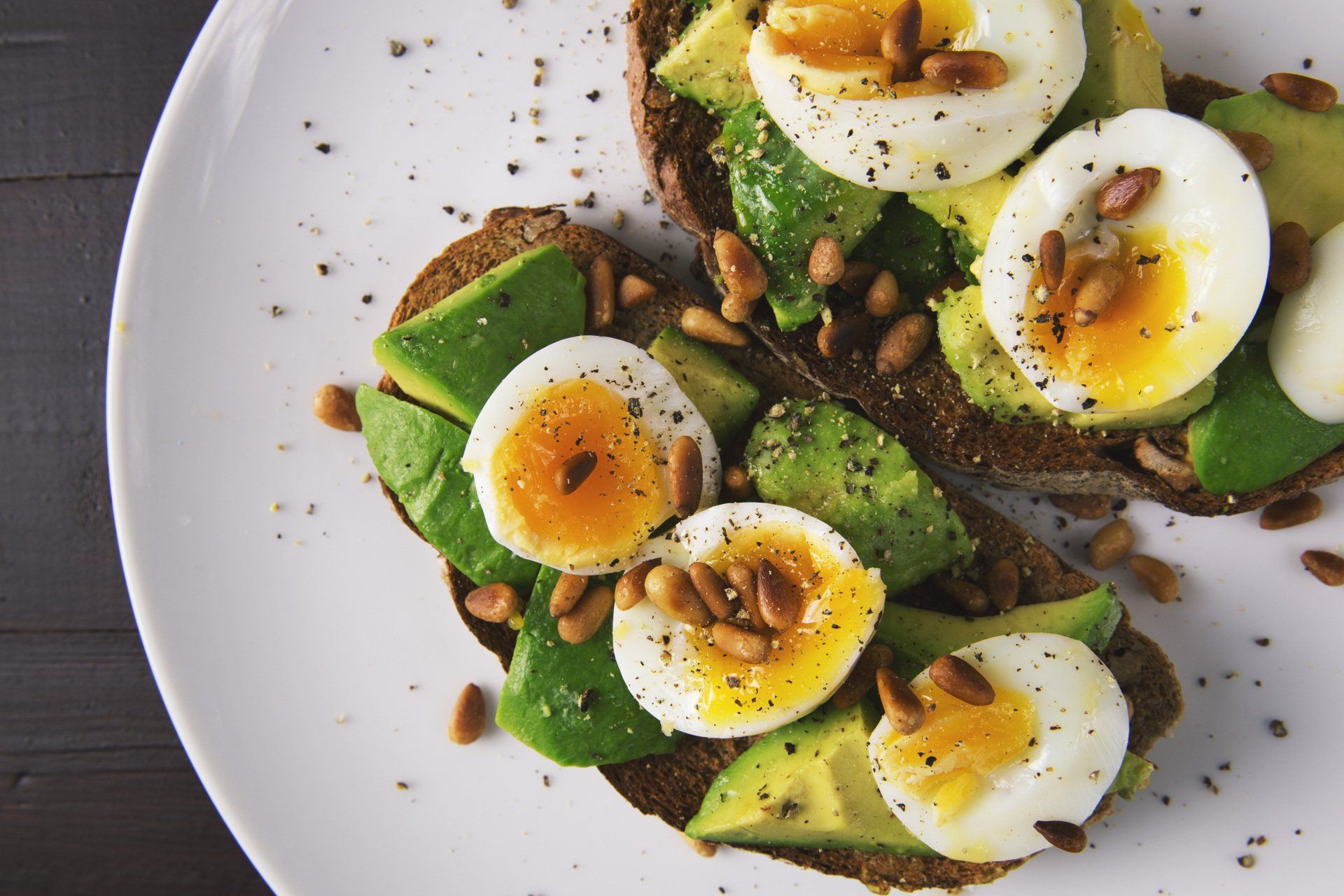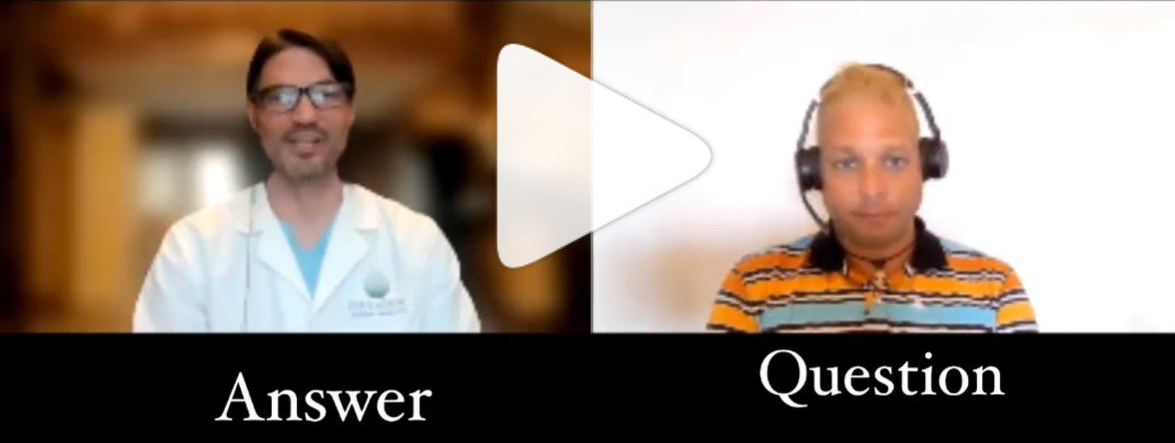Blog Post
Why Is Protein So Important?
Chef Jay Lipnicki Breaks Down Protein
If you’ve been following Stop and Regrow, by now you will know that protein is the single most important thing you can eat. Proteins are the building blocks of all living things. Your hair is made of protein just like mostly everything else in our bodies, ie: our skin (collagen is protein), your muscles (yes – this one we know), all your organs are made of protein, the anti-bodies in your immune system that help us fight infections, the neurotransmitters in our brains that keep our moods stable, that help us think clearly, remember well and come up with billion dollar ideas are also made of protein. Even the enzymes in our bodies that digest our food, that breath for us and that make hormones (among many other functions) are made of protein.
As a chef I was taught to make protein the star of any plate. This makes sense given how important it is to our overall health and well-being. Besides being the most important macro-nutrient, protein food sources also have the highest concentration of the micro-nutrients we need on a daily basis.
So what are proteins made of?
Proteins are made of smaller molecules called amino acids. There are 21 amino acids in total, 9 of which are Essential. An Essential Amino Acid is one that your body cannot make on its own, it has to exist already made in the food you eat. Foods that contain all 9 amino acids are called Complete Proteins. Your body uses complete proteins as the building blocks to build and repair your body.
What are the best sources of protein?
When thinking about protein most people jump immediately to red meat. However, there are many more great protein sources such as fish, chicken, eggs and dairy products. All animal-based proteins are complete proteins.
What about plant-based protein sources?
Yes you can absolutely get complete proteins from plant based sources too. Some examples include Quinoa, Nuts and Kale. Also Tofu, Lentils, Chickpeas and Edamame. Some other plant-based foods contain some of the 9 essential amino acids but not all. Examples of these include peas, beans and rice. We can however make complete proteins by consuming complimentary plant based amino acid sources in the same meal. A good example of this is eating rice and beans together. Alone these don’t contain all 9 essential amino acids, but together they do and your body can then use them to make the proteins it needs. This makes it important for vegans to understand how to combine foods to ensure they get the protein they need enough times per day to maintain ideal health. This is especially important to understand if you are looking at plant based protein powders or supplements. Make sure they have either complimentary plant based proteins in the same product or have added amino acids for a complete protein profile.
How much protein do we need?
Each person’s protein needs will vary based on their goals. But a good rule of thumb is to aim for at least 100 grams of protein per day, more if you are looking to build muscle. The good news is that the Biochemical Report Card
will let you know whether the amount of protein you are currently consuming is sufficient for your body’s needs or whether you need more on a daily basis.
So how does protein digestion and absorption work?
One of the most important things I learned from Dr Nettles that I didn’t learn in culinary school is how protein is digested and absorbed by the body. The small intestine is where enzymes absorb the protein from the food passing through. Each time we eat or drink, its takes 1-3 hours for that food to pass through the small intestine on its way from our stomach to the toilet based on how solid the meal is. Liquids take approximately an hour to pass through while very solid meals up to 3 hours. The small intestine however has a limit on how much can be absorbed during that passage. That limit is 6-10 grams per hour depending on the protein source. Protein shakes and eggs have the highest absorption rates, followed by meats and then plant based sources last.
Now unlike fat and carbohydrates, any protein we don’t absorb on the way through - literally goes down the toilet. This means on average we can only absorb at most 20 grams of protein each time we eat. Given our goal is to take in at least 100 grams per day, it is much better to eat smaller meals on a more frequent basis. Ideally 20 grams of protein every 2-3 hours. This makes sense when you think about it. Hair doesn’t grow and our muscles don’t replace themselves only at certain times of the day.
But if I eat 6 times per day won’t I put on weight?
Only if your portion sizes are too large. The trick is not to eat more in total but to eat more often. A general rule of thumb to use is to not eat more than the size of your clenched fist at any one time.
I heard that it's not good for you to eat too much protein
The first thing you will realize from the information above is that due to the limit on protein absorption by the small intestine, its not even possible to eat too much protein. Anything more than our small intestine can absorb simply goes down the toilet - literally.
So how much of particular foods will give me 20 grams of protein?
While this list is not exact, it will give you a general guide for how much of common foods to consume with each meal. As you’ll see from the below table, its actually less than you think. And yes, restaurant portion sizes are in general way too large. My tip – only eat half your meal in the restaurant and take the other half home to enjoy a couple of hours later for maximum protein absorption.
| Food Source | 20g Protein |
|---|---|
| Meat | 4 oz |
| Fish | 4 oz |
| Chicken | 4 oz |
| Nuts | 2/3 Cup |
| Greek Yoghurt | 1 Cup or 200 grams |
| Cottage Cheese | 1/2 Cup or 100 grams |
| Soybeans | 2/3 Cup |
| Lentils/Dahls | 1 1/3 Cup |
| Milk | 2 Cups |
| Whey Protein Powder | ~1 Scoop (per directions) |
| Eggs | 3 Eggs |
If you’d like to join me on this journey, Stop and Regrow offers a complimentary phone consultation to provide more information about their process and answer any questions you might have. You can call on (310) 601-4778 or book online here.
You can follow my Stop and Regrow journey
along with others online here.
Share
Tweet
Share
Mail
Recent Articles From Our Blog
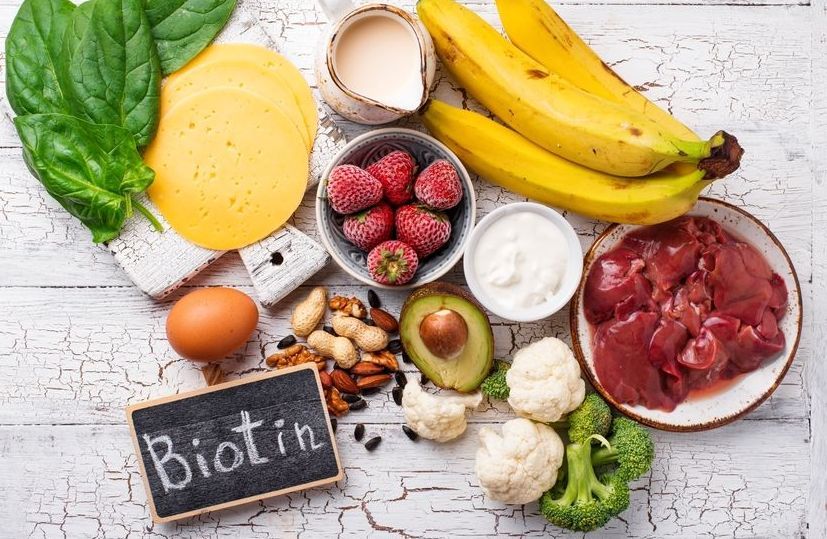
25 Dec, 2023
Biotin, often touted as a miracle solution for hair woes, is a B vitamin essential for various metabolic processes. It's frequently found in hair and nail supplements, with many products claiming "biotin for hair" as a key ingredient for hair regrowth. But what does science really say about it?
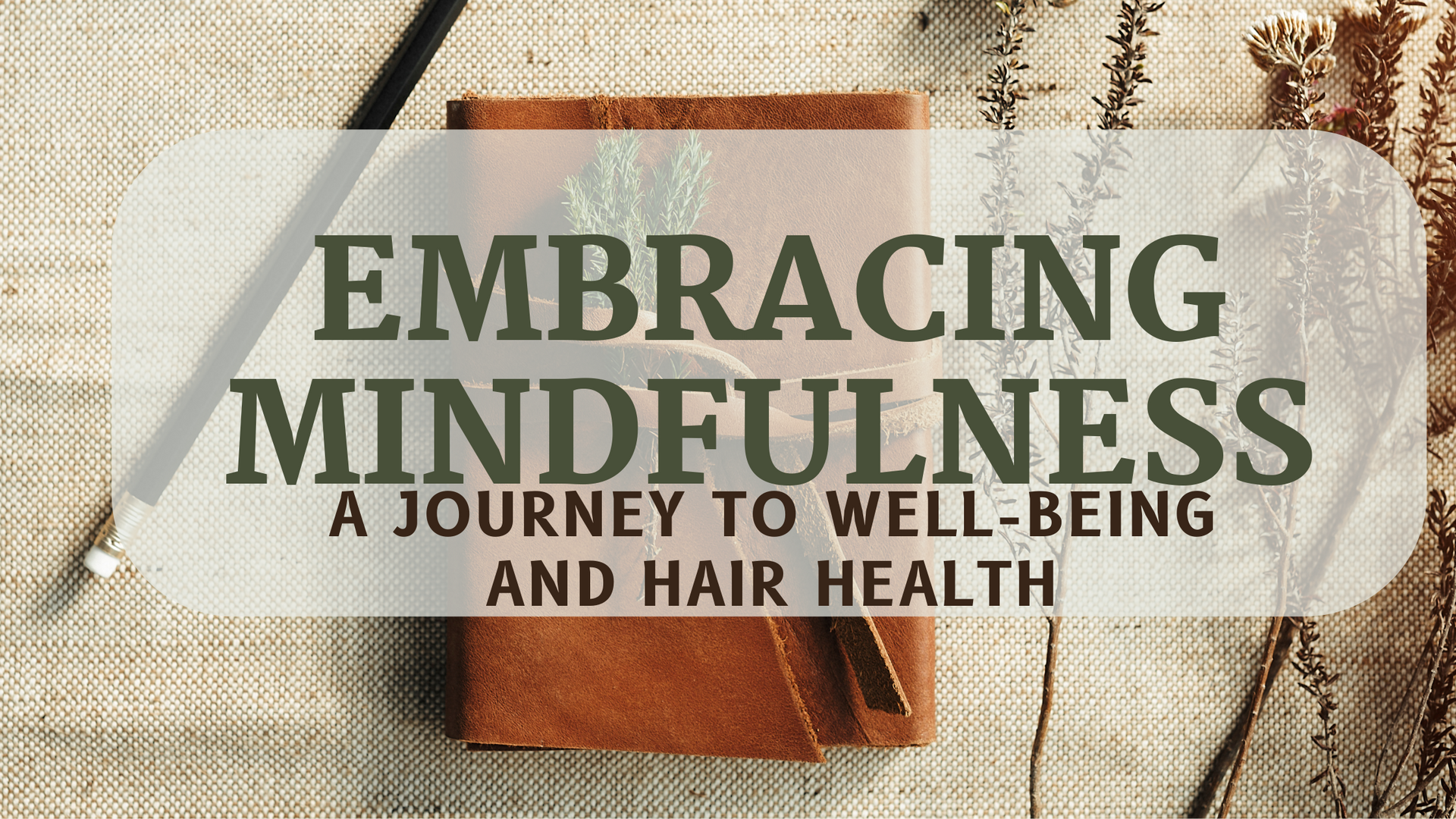
By Michelle Parrinello
•
05 Dec, 2023
In our fast-paced world, stress has become a familiar yet unwelcome companion. It not only affects our mental and physical health but also manifests in unexpected ways, including hair loss.
For those battling hair thinning or loss, understanding the connection between stress and hair health is crucial. This is where mindful self-care steps in as a beacon of hope.
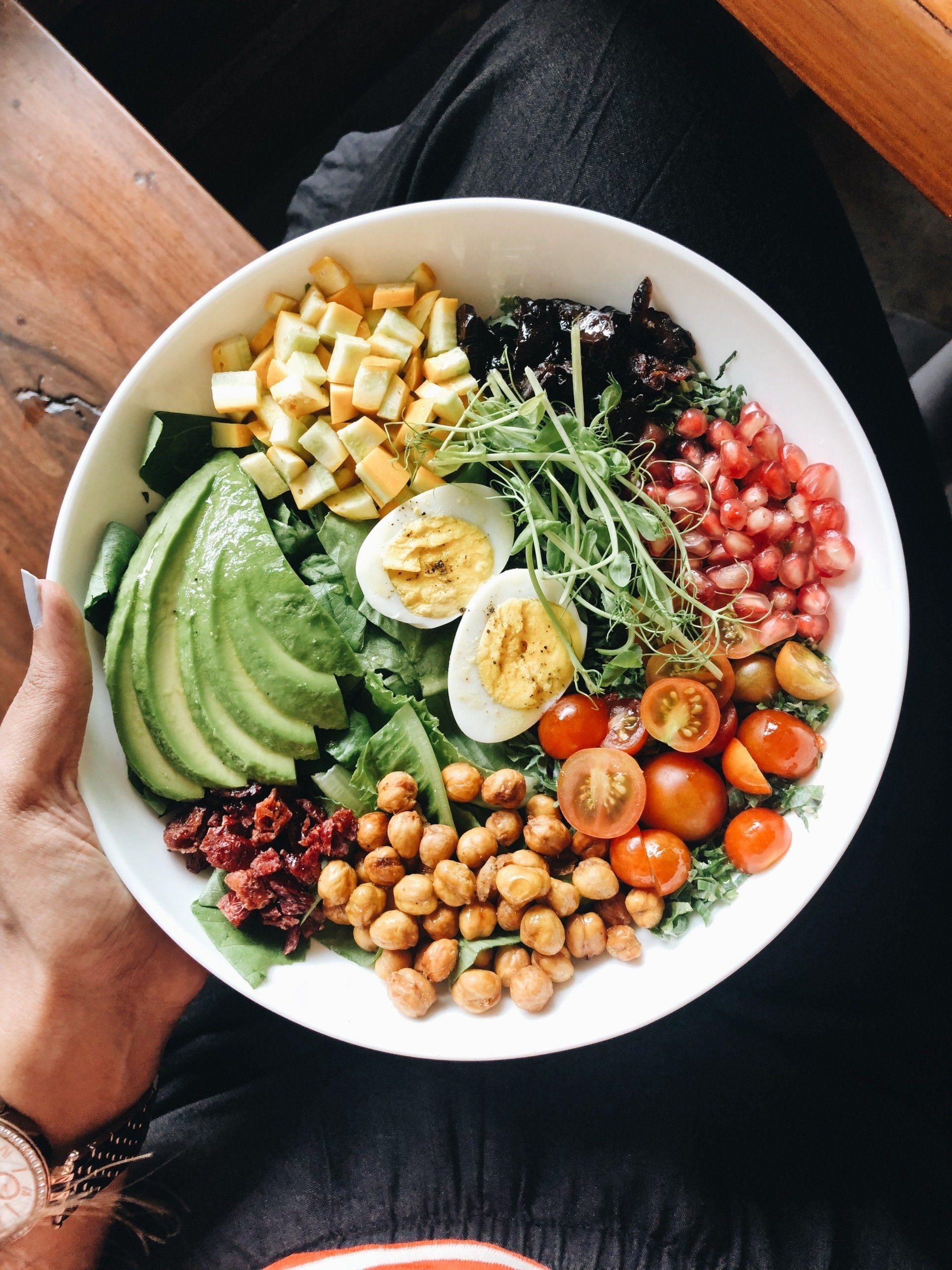
02 Dec, 2023
Why Nutrition Matters for Hair Health?
Nutrition isn't just about keeping your body fit and healthy; it's also key to your hair's health. Just like any other part of your body, your hair needs the right nutrients to grow strong and healthy. What you eat has a big impact on the strength, growth, and volume of your hair.

01 Nov, 2023
In the fast-paced world we inhabit, stress is a constant, lurking in both our professional and personal realms. While the mental health implications of chronic stress are well-discussed, its physical manifestations are often overlooked. One such overlooked area is hair health. Prolonged stress doesn't just leave us feeling frazzled; it can also lead to significant hair loss and impede its regrowth.

22 Oct, 2023
By combining cutting-edge science and age-old natural remedies, holistic hair care represents a revolutionary approach, promising lustrous, healthy hair. This comprehensive guide dives into the essence of holistic hair care, merging insights from holistic therapies with current scientific perspectives
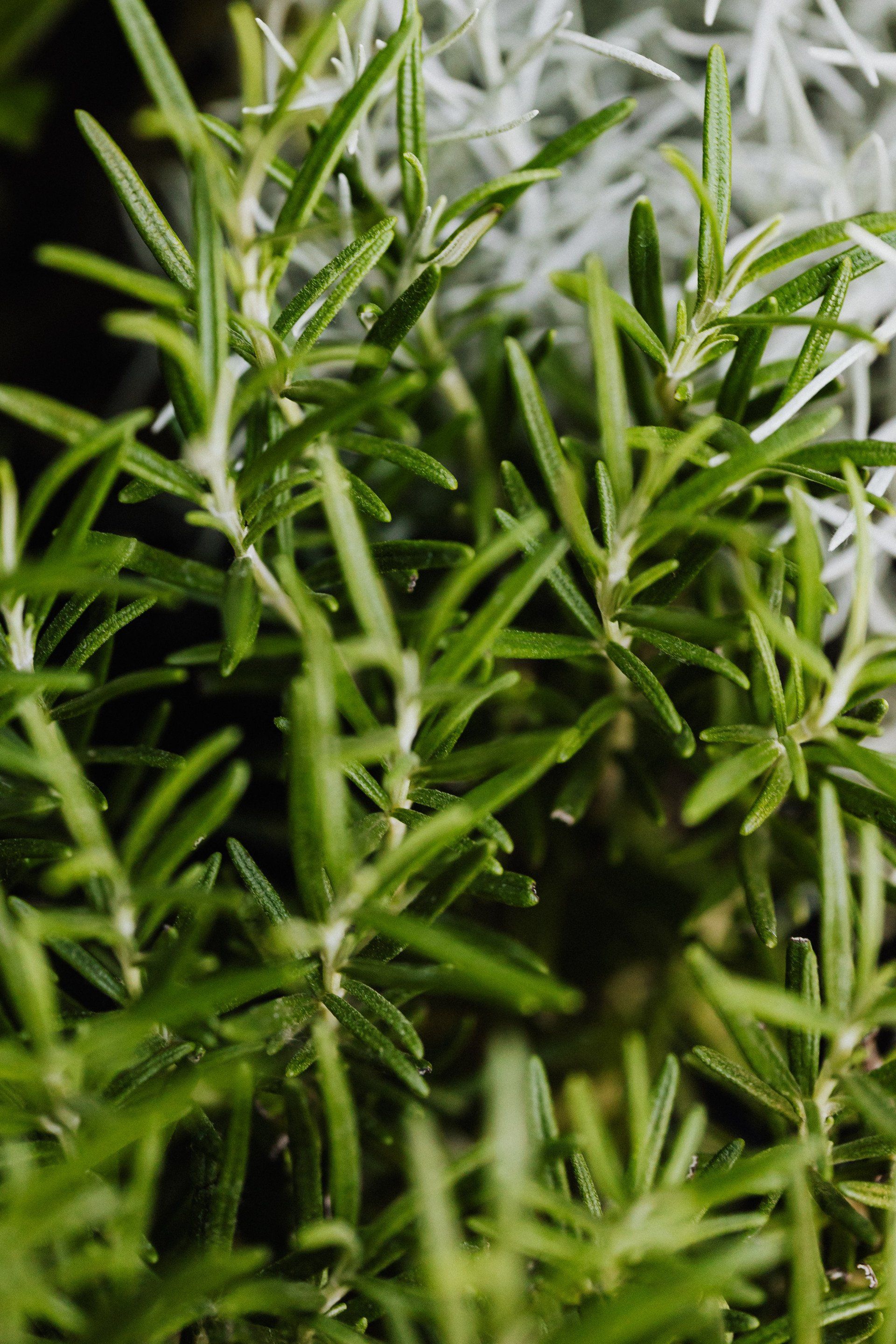
25 Sep, 2023
In the quest to comprehend hair loss's multifaceted nature, inflammation has been frequently discussed. With some theorizing its role in causing hair loss, the evidence remains inconclusive. This article examines the potential relationship between inflammation and hair loss, and the buzz around rosemary oil as a remedy.
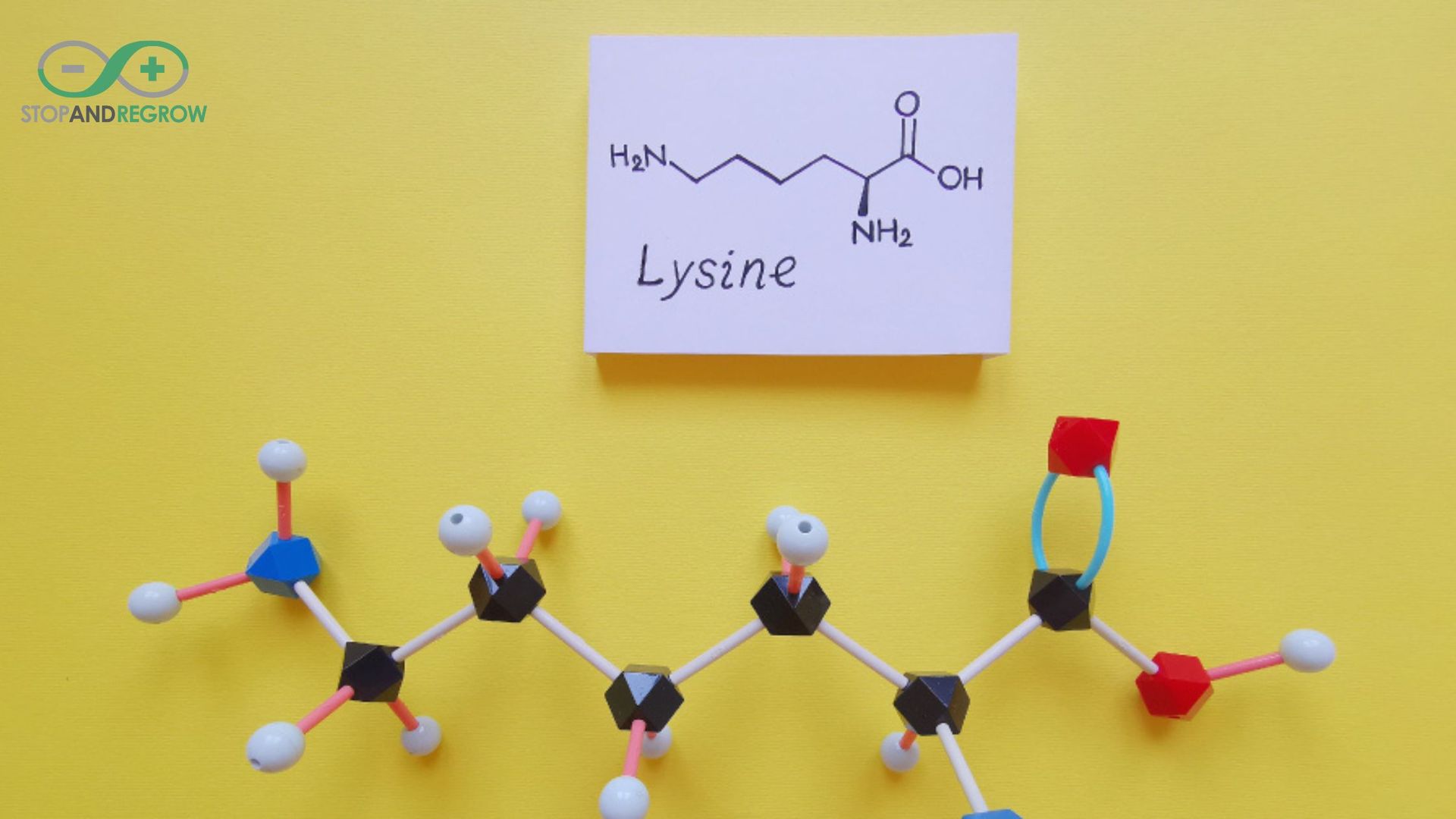
By Dr Robert Nettles
•
22 Sep, 2023
Are you on the lookout for effective solutions to foster hair growth and enhance your hair's general health? Your search ends here with Stop and Regrow's comprehensive guide on utilizing lysine for hair growth . Get ready to empower your journey to fuller, healthier hair. Understanding the Impact of Lysine on Hair Growth Lysine stands tall among essential amino acids that our bodies cannot generate naturally, necessitating intake through diet or supplements. This indispensable component, prominently featured in Dr. Nettles' formula, has garnered attention for fostering robust and vibrant hair growth. Let us delve deeper to understand how lysine is revolutionizing hair care: Collagen Production Collagen, fostered substantially by lysine, is pivotal in safeguarding hair’s strength and structure, thereby reducing the susceptibility to damage and breakage. Iron Absorption Lysine facilitates the optimal absorption of iron, a mineral vital for hair growth, averting hair loss linked to iron deficiency. Witness the Transformation: Lysine Hair Before and After Embarking on a hair care routine supplemented with lysine can potentially enhance the health and appearance of your hair. However, it is pivotal to note that while lysine can foster healthier hair growth, particularly if you have been deficient, it is not a direct treatment for the underlying causes of hair loss. Individuals have reported positive changes in their "lysine hair before and after" experiences, observing improvements such as: • Augmented hair thickness and volume • Enriched hair texture and luminosity • Fortified resistance against damage and breakage These transformations are an adjunct benefit of addressing the primary causes of hair loss through a comprehensive treatment strategy like that offered by Stop and Regrow, where lysine plays a supporting role in encouraging healthy regrowth after the root causes of hair loss have been identified and addressed. Incorporating Lysine in Your Hair Care Routine Wondering how to seamlessly infuse lysine in your daily routine? Here’s how: Diet Initiate by integrating lysine-rich foods such as lean meats, fish, dairy products, and legumes into your diet, nourishing your body with the requisite lysine. Supplements For a consistent lysine intake, especially if dietary sources prove insufficient, consider Dr. Nettles' holistic hair health and growth formula that accommodates lysine, facilitating an easy-to-follow hair care regimen. Zooming in on Dr. Nettles' New Formula: n/e - The Link to Reversing Hair Loss Spanning 25 years of meticulous research, Dr. Nettles and his diligent team have unveiled a proprietary blend of natural essential coFactors, encapsulated in a revolutionary formula termed “n/e,” denoting "nettles essentials." This blend emerges from a profound understanding of the indispensability of lysine and methionine, both essential amino acids integral to hair composition. Lysine Apart from being a fundamental building block for proteins constituting hair, lysine accelerates new cell growth, attenuates cortisol stress reactions that can inhibit healthy hair growth, and offers anti-inflammatory benefits coupled with enhanced immune responses. Methionine Methionine not only aids hair growth but also facilitates protein synthesis from consumed food, contributing to normal cellular and DNA functions, and reducing chronic disease vulnerability. Conclusion: Embarking on a Journey to Revitalized Hair with Lysine Lysine, with its dual role in collagen production and iron absorption, emerges as a powerhouse in your hair care toolkit. Through Stop and Regrow’s meticulously crafted formula, numerous individuals have reveled in the positive ramifications of lysine, witnessing significant enhancements in hair thickness, texture, and general health. As you venture into leveraging the potential of lysine for hair growth, remember that outcomes may vary across individuals. A holistic approach encompassing balanced nutrition, apt hair care, and guidance from hair care maestros like Dr. Nettles can pave the path to gratifying results. Embark on a journey to resplendent, healthy hair by harnessing the transformative power of lysine, the cornerstone of hair revitalization. Book your no-obligation free video consultation today to learn whether Stop and Regrow will work for you. We wont take you on as a client unless we can successfully regrow your hair.
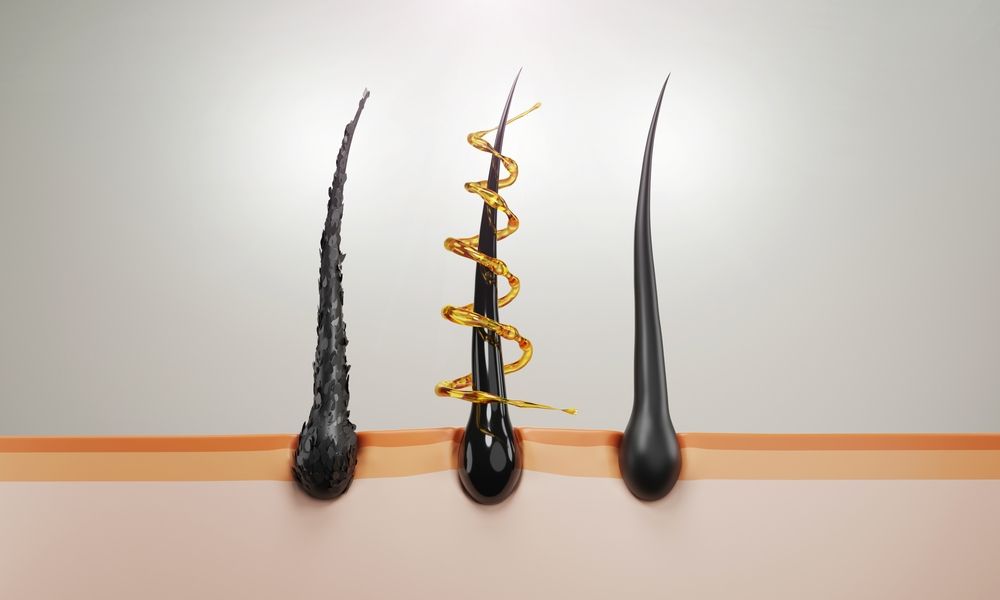
01 Aug, 2023
The battle against hair loss often zeroes in on a hormone called Dihydrotestosterone (DHT). Frequent queries like "How to Block DHT Molecules" and "Things That Block DHT" underline a widespread belief that simply blocking DHT is a magic bullet for hair loss. However, a fundamental understanding of biochemistry and physics challenges this concept, reminding us that nothing in the universe, including DHT, simply disappears or is blocked without consequences.
By providing your SMS number you opt in to receive occasional text messages from us. We will not ever sell or provide your data to third parties and you may opt out at any time.. Message and data rates may apply.. SMS Terms & Conditions
